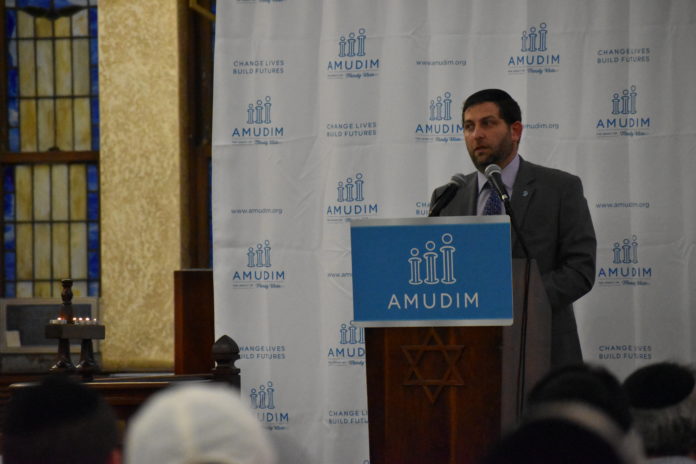
NEW YORK (VINnews/Zvi Gluck) — Like so many others, I left MetLife Stadium after the Siyum HaShas celebrating the culmination of the 13th study cycle of Daf Yomi ready to take on the world, or at least the 2,711 pages of the Babylonian Talmud. Having spent four hours at the siyum, it was nearly impossible not to catch “Daf Yomi fever,” and when Sunday, January, 5th, dawned crisp and cold, I sat down with my chavrusa and we began learning the opening words of the first of the 63 tractates of the Talmud. Like so many others, I found myself wondering why the Talmud starts with a discussion of the mitzvah of Krias Shema and segues into a story about Raban Gamliel’s sons coming home quite late after attending a “beis mishte,” described by the Rambam as an exclusive wine party. Asked by his sons if the time to recite the nightly Krias Shema had already passed, Raban Gamliel replied that they were still able to perform the mitzvah, an answer that had me contemplating what hidden messages might be found in the words of the Talmud and its many commentaries.
We know that we recite the Shema as an acceptance of ol malchus shomayim, our complete subservience to G-d in everything we do, a concept that, in the terminology of the recovery world, would be the equivalent of surrendering to a higher power. Considering the question posed by Raban Gamliel’s sons and his reply through the prism of recovery sent shivers down my spine because it echoes the work that Amudim does helping those challenged by abuse and addiction.
We wake up every morning and say Shema, accepting G-d’s supreme sovereignty with the understanding that while there are times in life that we might make mistakes, we always have the ability to start anew. Before going to sleep at night, we say Shema once again, reiterating our unwavering commitment to the One Above, taking with us the message that every day is a new opportunity, and that even when we are struggling, there is a G-d in heaven who gives us the strength and ability to carry on.
The fact that the greatest set of Hebrew texts passed down through the generations begins with this concept was to me, personally, a resounding message of hope to all those out there who are working hard to maintain their sobriety. As we begin the 14th worldwide study cycle of Daf Yomi, it is inspiring to realize that while it was written centuries ago, the Talmud was and is very much cognizant of the realities of life.
The fact that we start every day saying Krias Shema, accepting G-d as a higher power, is a reminder that every morning brings with it the chance for a fresh start. And the fact that we conclude each night in the exact same way provides a beacon of light to those who are struggling, and a reminder that with G-d in our lives, new beginnings are not just possible, but are ours for the taking.
Zvi Gluck is the director of Amudim, an organization dedicated to helping abuse victims and those suffering with addiction within the Jewish community, and has been heavily involved in crisis intervention and management for the past 20 years. For more information go to www.amudim.org.
As reported by Vos Iz Neias
